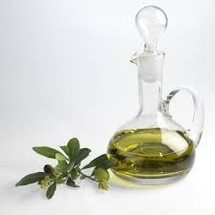Posted by Chalyce Macoskey on 15th Sep 2023
What Is Moringa Oil?
Moringa oil is derived from the seeds of Moringa oleifera, a small tree native to the Himalayan mountains. Virtually all parts of the moringa tree, including its seeds, roots, bark, flowers, and leaves, can be used for nutritional, industrial, or medicinal purposes.
For this reason, it’s sometimes referred to as “the miracle tree.” It’s also called the drumstick tree, in reference to the shape of its seed pods.
Moringa seeds have a high oil content and contain many nutritional compounds, including monounsaturated fats, protein, sterols, and tocopherols. Moringa oil is produced through a variety of industrial processes, including solvent extraction and cold-pressing.
It’s available as an essential oil and as a cooking oil. It’s also an ingredient in hair and skin products. Click here for recipes for hair and skin DIY ideas.
Moringa oil uses and benefits
Moringa oil has been used as a medicinal folk remedy and as a topical, cosmetic ingredient since ancient times. Today, moringa oil is manufactured for a wide range of personal and industrial uses.
Moringa oil uses and benefits
Moringa oil has been used as a medicinal folk remedy and as a topical, cosmetic ingredient since ancient times. Today, moringa oil is manufactured for a wide range of personal and industrial uses.
- Cooking oil. Moringa oil is high in protein and oleic acid, a monounsaturated, healthy fat. When used for cooking, it’s an economical, nutritious alternative to more expensive oils. It’s becoming a widespread nutritional staple in food-insecure areas where moringa trees are grown.
- Topical cleanser and moisturizer. Moringa oil’s oleic acid makes it beneficial when used topically as a cleansing agent, and as a moisturizer for skin and hair.
- Cholesterol management. Edible moringa oil contains sterols, which have been
to lower LDL or “bad” cholesterol.
- Antioxidant. Beta-sitosterol, a phytosterol found in moringa oil, may have antioxidant and antidiabetic benefits, although more research is needed to confirm this.
- Anti-inflammatory. Moringa oil contains several bioactive compounds which have antioxidant and anti-inflammatory properties, both when ingested and used topically. This may make moringa oil beneficial for acne breakouts. These compounds include tocopherols, catechins, quercetin, ferulic acid, and zeatin.
Moringa leaves vs. oil
The entire moringa tree is used for various purposes. Keep in mind that moringa oil comes solely from its seeds, not from its leaves or flowers
Some purported benefits of moringa may not be derived from the oil, but from other forms, such as leaf powder.
For example,
Ingestion of the bark, leaves, and flowers of the moringa tree can generate uterine contractions severe enough to cause a miscarriage. Moringa oil has not been linked to this risk. However, it’s important to discuss the use of moringa oil with your doctor, especially while trying to conceive and during pregnancy.
The takeaway
Food-grade moringa oil is a healthy, monounsaturated fat that’s high in protein and other compounds. As a carrier oil, moringa has benefits for moisturizing and cleansing the skin. It can also be used for acne and as a moisturizing hair treatment.
Complete article can be found here

